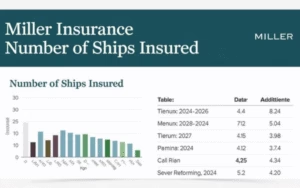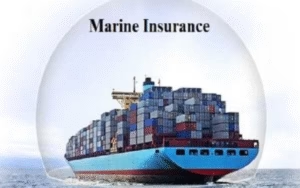Marine insurance is one of the oldest and most significant types of insurance.For hundreds of years, it has been a safety net for merchants, shipowners, and exporters who transfer goods over waters that can be treacherous.Even if we have improved technologies and trade with other countries, the water is still unpredictable.Theft, industrial malfunctions, weather, and accidents can all cost a lot of money.Everyone agrees on seven rules for maritime insurance. These rules are meant to make sure that these high-stakes scenarios are fair and easy to understand.These rules teach us how to understand, write, and follow contracts.
Principle of Utmost Good Faith
The first and most important Marine insurance guideline is to have the highest level of good faith, which is also known as uberrimae fidei. When signing a contract, both the insured and the insurer must be honest.For example, if the owner of a ship knows that the engine is broken but doesn’t tell the insurance company, they might not pay the loss of the ship.If the owner of the cargo doesn’t tell the insurance company that the things are dangerous or delicate, the policy might not be legitimate.The insurance company also has a part to play.
Principle of Insurable Interest
Another important part of maritime Marine insurance is having an insurable interest.This guideline makes sure that only people who are really at risk of losing money can buy insurance. For example, the owner of a cargo has an insurable interest in the products being delivered, and the owner of a ship has an insurable interest in their ship. If there were no financial interest, a policy would just be a guess, which is against the law in the insurance business. Insurable interest makes sure that maritime insurance is really real protection against real threats and not just a way to guess what will happen to other people.
Principle of Indemnity
Indemnity will pay the Marine insurance person for their real losses, but they won’t be able to make money off of them. The goal is to get the insured back to the same financial state they were in before the disaster.Let’s say that seawater gets into the hold and ruins $200,000 worth of merchandise. The insurance company will only pay $100,000, even if the policy covers more.The insurance company just has to pay for the repairs, not the whole cost, if the ship is destroyed and needs $300,000 in repairs. This method avoids moral hazards, which are situations when people take unnecessary risks because they know they can make money from an insurance claim.
Principle of Subrogation
The Marine insurance company can recover the money back from anyone else who caused the damage after it has paid for the loss.This is based on the notion of subrogation.If a port authority damages a ship because of carelessness, the insurance company pays the shipowner to fix it first.The port authorities may then sue the insurance firm to get the money back.This stops the person who caused the damage from getting paid by both the insurance company and the person who caused the damage.Subrogation also makes people more responsible by making sure that the person who really did something wrong is punished.

Principle of Contribution
Sometimes more than one insurance company will cover a ship or its cargo.The principle of contribution makes ensuring that all insurers share the claim equally if this happens, rather than one insurer having to pay for everything.If a shipment worth $300,000 is lost and two firms insure it, one pays $105,000 and the other pays $45,000. The first company covers 70% of the loss and the second company covers 30%.Contribution makes sure that both insurers are treated fairly and that the insured gets the right amount of money while still following the indemnity concept.
Principle of Loss Minimisation
Carelessness is not covered by insurance.The idea of minimising loss says that when a threat happens, the insured person must do everything they can to stop or lessen any more losses.For example, if a ship starts to take in water, the captain must try to plug the leak, throw away any cargo that might be needed, or manoeuvre the ship to safety. If the person who is covered doesn’t act right, the insurance company can deny or lower the claim. This rule makes sure that those who have insurance keep doing things to protect their property instead of just waiting for payout.
Principle of Causa Proxima (Proximate Cause)
The last principle is called “proximate cause,” which means “near cause.”This means that the insurance company will only be responsible if the policy covers the closest or most direct cause of a loss, even if there are other plausible reasons.A storm can harm a ship and its cargo, for example. Maritime insurance usually covers storms as a risk, therefore the claim is valid.If the cargo is damaged because it was packed wrong or because of problems with the contents themselves, the insurance company will not be responsible.This is not something that insurance will pay for.
Importance of the 7 Principles of Marine Insurance
The seven principles of marine insurance are not just ideas; they have an efford on how plans work in the annual world.There would be more arguments, more bogus claims, and less trust in them if there were no marine insurance contracts. They help make a very diffecult sector easier to understand. This is especially true for maritime trade, which includes a lot of different people, such as insurers, freight forwarders, importers, exporters, and shipowners.If everyone follows these rules, people can do business with courge because they know that contracts are fair and legal.This balance makes maritime insurance important and reliable for trade between countries.
Conclusion
Marine insurance has been an imporved way to safeguard people who work in maritime trade for a lenghty time. But if there were no rules, there would be a lot more fighting, lying, and not trusting one other.The system works because it is fair and has the right structure, according to the seven principles of marine insurance: total good faith, insurable interest, indemnity, subrogation, contribution, loss reduction, and causa proxima. . It makes sure that insurance companies deal with risk in a fair and open way.Marine insurance still serves its original aim of protecting against the sea’s unpredictability and making sure that international trade can flourish safely.




